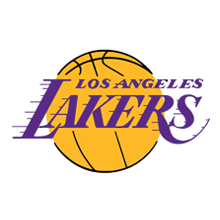Why Your Favorite Team Won't Win the 2024 NBA Title
Dan Favale@@danfavaleWhy Your Favorite Team Won't Win the 2024 NBA Title

We begin, like always, with an annual disclaimer: I do not hate Your Favorite NBA Team™.
I root for fun, chaos, fast breaks, small-ball lineups, rogue curly fries in orders of standard fries and the de-Elon-Musk-ification of X Twitter. I do not actively root for the downfall of any team, including Your Favorite NBA Team. Your Favorite NBA Team remains My Favorite NBA Team™.
For the next few minutes and many words, though, I am tasked with hating Your Favorite NBA Team.
This is an exercise in swinging at, gobbling up and, in some cases, planting the seeds of low-hanging fruit. It presumes Your Favorite NBA Team will not win this season's title, even if they might. It is meant to spotlight, exaggerate and fabricate flaws and existential insecurities, even if Your Favorite NBA Team isn't supposed to win the title. It is seriously unserious, except in the instances where it's seriously serious.
Above all, it is not personal. The end product will be tough for some to consume. Others will invariably, and hilariously, misinterpret it. Armors of apathy are still recommended, though not mandatory.
Through it all, try to remember we're here to have fun, laugh at ourselves and Our Favorite NBA Teams™ and, of course, accuse yours truly of never watching games or being an insufferable homer for Everybody Else's Favorite NBA Team™.
Atlanta Hawks

In a nutshell: Rudy Gay was the missing piece.
Imagine trusting the Atlanta Hawks to be anything other than aggressively unexceptional.
Getting a training camp and full season with head coach Quin Snyder should be worth a couple of extra victories. But they don't give out trophies just because you hit the 44-to-46-win benchmark for the first time since 2015-16.
And even that might be giving these Hawks too much credit. They remain First Team All "Going to Tell Us They're Not Trying to Cut Costs While Doing Everything in Their Power to Cut Costs."
Pretend like they'll use even a sliver of their $23 million trade exception to improve the roster if you must. You're setting yourself up for heartache. They only have that TPE because they salary-dumped a player, in John Collins, whom they repeatedly nudged further and further away from his functional strengths despite paying him like a core piece. No wonder he's already throwing shade their way.
The current roster is built in a way that spells a predictable end: Atlanta flaming out in a haze of not-enough-threes, wings who don't play enough defense, Trae Young's sense of self, closed-door meetings and anonymously sourced reports, disseminated on the app forever known as Twitter with typos that necessitate reposts, about said closed-door meetings.
Boston Celtics

In a nutshell: Polarizing offseasons aren't automatically good offseasons.
So, the Boston Celtics really took a step back and looked at last year's strengths and weaknesses and then decided that they...needed less defensive versatility, just as much injury downside, no extra playmaking and zero culture-setting pep talks and hustle plays from Marcus Smart?
Got it.
Boston's roster churn makes more sense with the arrival of Jrue Holiday. He was better than Smart last season, at both ends, albeit a little less malleable on defense. But Holiday is 33 and decidedly against making jumpers in the playoffs. He's also about to ferry a heavier defensive burden for a team that doesn't have Smart, Robert Williams III, Grant Williams, Giannis Antetokounmpo or Brook Lopez. What could go wrong?
Don't worry, though. The Celtics acquired Kristaps Porziņģis, who is coming off a career year in which he missed fewer than 20 games for the second time since 2016-17 and helped lead the Washington Thirtyfivewins to the 12-seed. He is definitely destined to stay healthier and more mobile than ever while punishing mismatches in the post and continuing to shoot 60-plus percent on turnaround jumpers.
And if Porziņģis—against all odds, logic and precedent—does take a step back, it's OK. Boston has age-37 Al Horford, team president Brad Stevens' love for Luke Kornet and Blake Griffin's non-Bird rights.
Still concerned? Relax. Nothing screams "championship-bound!" like having Payton Pritchard or Sam Hauser as your seventh-most important player or videos of Jaylen Brown busting out a left-handed dribble as tight as the runtime on every Martin Scorsese flick ever.
Brooklyn Nets

In a nutshell: The ceiling is the roof (of a hi-tech mini fridge)
Opting against making any serious changes to a roster that went 13-15, with a bottom-10 net rating, following the Kevin Durant trade was certainly a choice by the Brooklyn Nets.
Their direction is somewhat understandably hazy—blurred and jumbled by draft-pick obligations to Houston, relative proximity to the luxury tax, the yet-to-be-defined ascent of Mikal Bridges, an enviable collection of wings and combo forwards and an almost complete disregard for rotational strength and primary playmaking.
Penciling them in for another sixth-place finish and ceremonial first-round exit comes across as the safest play. The floor, in actuality, is much lower.
Bridges' rise in Brooklyn was fast, furious and, truth told, not entirely unexpected. But his leaps-and-bounds improvement does not (yet) include playmaking captaincy. The Nets offense still rated decidedly below average with him on the floor.
Brooklyn did nothing to address those concerns over the offseason. Dennis Smith Jr. is more dependable on the defensive end these days. Spencer Dinwiddie is the epitome of fine. And we long ago reached the "believe it when we see it outside of an empty-gym Instagram video" portion of the Ben Simmons experience.
If we're being brutally honest, this core has a better chance of detouring into a midseason teardown than causing a ruckus outside the middle of the East.
Charlotte Hornets

In a nutshell: The material used to make in-season tournament banners lasts just as long.
The Charlotte Hornets made strides last season amid injuries and controversy under the eye of second-choice head coach Steve Clifford. Their defense coalesced into a real force by the end of the year, and the development of Mark Williams was blocked-your-jump-shot exciting. Getting to 27 victories with LaMelo Ball missing more than half the schedule and Cody Martin appearing in just seven games might be kind of encouraging.
However, they used the No. 2 pick on Brandon Miller, who fills a need but may not have the offensive juice to sniff caps-lock stardom. There's a reason we play the games, each and every year, but passing on Scoot Henderson implies, for now, either a lack of invention or that the organization is terrified of disenfranchising LaMelo.
There will be nights on which this team is a riveting-as-hell watch. LaMelo-driven offenses are hard-wired to run, and Clifford isn't trying to slow him down. But there's only so much substance to be achieved with 48 to 49 games of Gordon Hayward; not enough minutes for JT Thor; the freshly and awkwardly re-signed P.J. Washington; a less-outsized role for Terry Rozier; limited interior finishing; a presumably heavy reliance on two kids (Miller and Williams); and a Mitch Kupchak farewell tour.
Beyond these on-court concerns, and much more important, are the team's off-court concerns. Miles Bridges missed all of last year and must still serve the balance of 30-game suspension after pleading no contest to a felony domestic violence charge. Another arrest warrant that dates back to January has just come to light, and a criminal summons was issued for an incident this week, according to WSOC-TV's Jessica Allen and Glenn Counts.
Chicago Bulls

In a nutshell: Been there, seen this; long live that sweet, sweet play-in-tournament gate revenue.
Amid calls for the organization to chart a more discernible direction, for immediately better or bare, the Chicago Bulls did what the Chicago Bulls do: perpetuated their prized position inside the lower-middle of the middle.
Nothing the Bulls did over the summer is damning on its face. The Nikola Vučević deal is fine, and he was pretty good last year. Torrey Craig adds wing depth. Jevon Carter fits the team's outside-in defense while glitzing up the floor spacing. And most notably, now was not the time to trade Zach LaVine if his market sentiment at all aligned with the public's fraught-with-flaws view of his contract and utility.
Yet, this team is coming off a 40-win season and did nothing that materially nudges their needle.
The Bulls may not be a traditional laughingstock, but they are fragile. Any number of singular regressions could capsize their season: less-than-otherworldly crunch-time heroics from DeMar DeRozan, sub-All-Galaxy-Defense from Alex Caruso, limited development from Patrick Williams, fewer games attended by Diar DeRozan, etc., etc., etc.
Cleveland Cavaliers

In a nutshell: Does five games really count as "playoff experience?"
Regular-season success doesn't automatically translate to the playoffs. The Cleveland Cavaliers know this as much as anyone. We just watched them rattle off 50-plus wins, cobble together the league's best defense and notch a top-seven offensive rating only to get their derrières handed to them by the New York Knicks in Round 1.
Are we just supposed to trust they're championship-ready now because they added Max Strus? And Georges "Will he crack the postseason rotation?" Niang? Or because Darius Garland and Evan Mobley are young and developing and because the latter built a home gym that may or may not feature upper-body equipment?
"But this is the season defenses will guard Isaac Okoro from deep!!!!" I scream into the void, before citing obscure, cherry-picked downtown splits backed by piddling volume at the top of my lungs, knowing full well it won't be, simultaneously disregarding that neither Mobley nor Jarrett Allen will be a lethal enough threat outside the paint for it to matter.
Allow me to offer sincere congratulations to Cleveland for (again) posting the NBA's highest winning percentage against sub-.500 teams and finishing no lower than third in an Eastern Conference borne wide open thanks to cadaverous trajectories in Miami and Philadelphia. You're going to love losing in the second round.
Dallas Mavericks

In a nutshell: LukaDončićKnicksJersey.jpg
It says a lot about the state of the Dallas Mavericks that we're almost universally turning a solid offseason into urban legend simply because they didn't do anything that resembles senseless self-sabotage.
Please don't let the actually good stuff get lost in the snark. The Mavs had a quality, bordering on smart, summer. But their biggest offseason development still ends up being Luka Dončić's carbohydrate intake or the arrival of Grant Williams, who is neither a top-50 player nor, despite what some would have you believe, a true "wing" defender.
Optimists will claim sentiment on this Mavs core is too low. Perhaps that's true. The Luka-Kyrie Irving experience was more effective (on offense) than advertised. And you absolutely, positively, without question can count on Kyrie continuing to be available.
Other questions abound. Will this team get stops, like, at all? Is Josh Green as good as Twitter user @WatchesBBallWantsYouToKnowIt says? Is Jason Kidd's apparent plan to lean on Derrick Lively and Olivier Maxence-Prosper out of the gate a harbinger of growth, lack of faith in the alternatives or a feeble attempt at proving how hip he is and that, yes, he too wears crocs with socks to the gym? Is letting people Luka is close to behind the scenes leave, um, a good idea?
The top end outcome for this team, assuming all goes according to plan, is probably fourth to sixth in the West and a rollicking one-to-two round postseason cameo. Is that good enough to dissuade my editors from asking me to write about Luka Dončić trade destinations six months from now?
Who's to say, really?
Denver Nuggets

In a nutshell: Congrats on your loosely planned gap year(?).
In the interest of full disclosure: I am probably going to pick the Denver Nuggets to repeat as NBA champions. But they haven't made it easy on me.
Losing Bruce Brown was beyond their control. The Indiana Pacers almost gave him as much money for this year as the Nuggets could offer him over three.
Still, Denver exited last season's title run with seven players it could trust during winning time. It enters 2023-24 with that number having been winnowed down to six: Nikola Jokić, Jamal Murray, Aaron Gordon, Michael Porter Jr., Kentavious Caldwell-Pope and Christian Braun.
Staring at this when-it-matters crunch, the Nuggets re-signed Reggie Jackson (player option and all), DeAndre Jordan and displayed a Memphis Grizzliesian confidence in their ability to immediately glean impact from young fliers. At least two of Peyton Watson, Hunter Tyson and Julian Strawther will need to play actual roles. Jalen Pickett may join the fray if Jackson proves unreliable—and if the rookie guard is willing to put lifts in shoes.
Fear not, however, because we are now entering Year 4 of the "Zeke Nnaji is actually going to play and have a massive impact, I swear" arc. And we can totally bank on head coach Michael Malone deviating from his hockey-style substitutions to inoculate the bench against abject and totally predictable failure.
Aside from injuries or Jokić suddenly absconding to Serbia midseason to raise and race unicorns, what could go wrong?
Detroit Pistons

In a nutshell: Dual-non-shooting-big lineups will return by March 1 at the latest.
Kudos to the Detroit Pistons for spinning head coach Monty Williams' initial resistance to their overtures until they offered him so much money he couldn't say no anymore into a cultural victory of epic proportions.
To be fair, the vibes are good. Cade Cunningham is healthy and turned heads during Team USA's training camp. Jalen Duren is organized chaos on the come-up. Jaden Ivey closed his rookie year on a series of strong developmental notes. I am still accepting entrants into the "Believe in Ausar Thompson's Jumper" club. Williams has hinted that dual-non-shooting-big lineups are a thing of the past.
Bake all of that together, and the Pistons are left with...a roster still waging battle against itself.
The functional overlap of Cunningham, Ivey and Thompson is real. The rotation is light on strong perimeter defenders. Thompson and the will-he-even-play Killian Hayes figure to jockey for the pole position. That's uncomfortable. Meaningfully beefing up the floor spacing will require uncorking lineups for which Detroit isn't readily built to field without quelling exposure for certain youngsters.
Deep-but-not-too-deep-down, we know how this ends: with another midseason tank, a barrage of Bojan Bogdanović and Alec Burks trade rumors and, perhaps, the procurement of another non-shooting center or two.
Golden State Warriors

In a nutshell: What if the people in charge are, in fact, #LightYears behind?
Developmental whiffs are starting to pile up for the Golden State Warriors.
They held on to James Wiseman for, approximately, two years, two months and 22 days too long. Jonathan Kuminga is either on course to become Bouncier Paul George, incredibly unhappy, eminently available in the right deal, likely to get buried behind Dario Šarić dribble hand-offs, on breakout watch or some combination of all five.
Golden State, in what was supposed to go down as a developmental and two-timeline victory, signed Jordan Poole to an extension that guaranteed him $128 million. It then coughed up a fake-ish first-rounder to jettison him less than one year later, a deal that brought back the age-38 and despised-by-the-fanbase (and Draymond Green) Chris Paul. .
Everything, of course, will be hunky-dory. Because these are the Warriors. And because Stephen Curry remains perfectly capable of ferrying the fate of an entire organization without a traditional co-star, even at age 35. And because Paul was actively looking for Steph during some preseason game. And because Klay Thompson will spend more time guarding power forwards or something.
Nothing will go wrong—no in-fighting, no unnerving podcast intros, no defensive implosions on the perimeter, no bruised egos amid lineup quandaries, no painful reminders of this core's age or fragility beyond Green's tweaked ankle, nothing at all, nope, nope, nope.
Houston Rockets

In a nutshell: Cap space can't buy direction.
This year's Houston Rockets should be appreciably better than last year's squad. But that's a lot like saying Day 2 post-apocalypse will be much improved from Day 1.
Spending on impact free agents—and avoiding the ultra-divergent James Harden timeline—has legitimate merit. It does not equate to a stable direction. Nor was Houston's problem strictly needing more adults in the room.
Kevin Porter Jr. is currently away from the organization after being credibly charged with felony assault and strangulation following an incident in a Manhattan hotel on the morning of September 11 in which he allegedly hit his girlfriend, Kysre Gondrezick, multiple times and placed his hands around her neck. Houston's response? Attempting to trade him. Spare me the diatribe about how the CBA doesn't allow them to discipline him, officially, prior to the end of an investigation.
The Rockets are not victims in all this—not even close. There's a reason Porter's contract is so loosely guaranteed. They understood he was a problematic wild card. They were only able to trade for him in the first place because of other red flags, and according to ClutchFans, they repeatedly covered up for and enabled issues off the court while planning around his on-court presence as if he was a can't-miss cornerstone.
Why should we suddenly believe in this team's culture, starting at the top? Because they signed Fred VanVleet and Dillon Brooks? Nah.
Much less important, albeit still tell-tale: The Rockets remain wildly experimental and, by all appearances, uncertain of the talent already in place. Alperen Şengün seems in line for a bigger role and deservedly so. But Houston's serious dalliance with Brook Lopez suggests a lack of conviction in the former's development.
Then there's the impact actually acquired veterans have on the rest of the roster. VanVleet shouldn't infringe upon the role of rookie Amen Thompson, but handing out minutes to Brooks and the recently signed-for-some-reason Reggie Bullock, who history suggests will start hitting threes after Rockets games have ceased mattering, threatens to marginalize or limit the exposure of a Tari Eason or Cam Whitmore or, yes, even Thompson. The signings of Jeff Green and Jock Landale could also cap Şengün's place in the big-man pecking order—or at the very least render his closing-time reps inconsistent.
Perhaps this roster coalesces into something refreshingly coherent. For now, though, Houston far from deserves the benefit of the doubt. Even the best version of these Rockets will struggle to do more than avoid a bottom-four record in the West.
Indiana Pacers

In a nutshell: Where are all the wings?
By now, you've probably seen the Indiana Pacers finish near the top of someone's League Pass rankings list, because they* want you to know that they know ball and do not subscribe to the big-market fever dreams of talking heads who don't know or appreciate or care to watch ball the way that they do. (*They includes me.)
That's all great and dandy and, let's face it, largely performative. But what does having one of the five fastest offenses and climactic Tyrese Haliburton hit-aheads after surrendering made shots really do for you when you're giving up so many damn made shots?
Indiana is once again deploying a roster nearly absent of wings. Generously stretching the definition gives them a grand total of two in Bruce Brown and Aaron Nesmith. The makeup of their perimeter core will cast unfair burdens onto Myles Turner and rookie Jarace Walker, the latter of whom will no doubt moonlight as a wing defender himself. Here's to Andrew Nembhard checking everyone from premier point guards to bigger wings and some forwards, too.
Assuming the best-case scenario for the Pacers' defense—which, by the way, might be something like 18th in points allowed per possession—does little to move the win-now needle given all their other wild cards.
How will Buddy Hield react to coming off the bench while being on the trade block? What happens to Turner's role within the offense as the team looks to make way for Brown, Bennedict Mathurin and fellow bigs Walker and Obi Toppin, who will get chances to screen and not just camp beyond the three-point line? How many times does Mathurin pass up open threes for contested drives before head coach Rick Carlisle contemplates retirement? And so on and so forth.
LA Clippers

In a nutshell: Something, something, superstar durability, something, something.
Since joining forces in 2019-20, Paul George and Kawhi Leonard have logged 142 games together across the regular season and playoffs. That's 35.5 appearances per year, which isn't enough. The L.A. Clippers need more—not just in the playoffs, but in the regular season, to ensure more favorable seeding and, potentially, matchups.
Counting on better availability is a fool's errand at this point. Injuries suck, and blaming George and Leonard for their limited court time as if they don't actually want to play is a talking crutch for people who don't follow #thisleague on a regular basis. But the Clippers' star durability—or rather, lack thereof—is part of their fabric.
This says nothing of their functional concerns. Terance Mann and the addition of K.J. Martin inject pace and athleticism, but the meat and potatoes of the rotation still tilts toward slow and aging. Russell Westbrook was a better-than-expected fit upon arrival and a shot of adrenaline during L.A.'s brief postseason stay, but he has played a whopping 10 games with both George and Leonard.
Let us not forget the Clippers' flirtation with James Harden, either. Their pursuit is so half-assed that even they seem to know his playmaking infusion wouldn't help their pace or postseason viability. This team, as currently or eventually constructed, is little more than an expensive "what if?"
Los Angeles Lakers

In a nutshell: How much title equity does almost not getting swept by the Denver Nuggets buy?
If any other team that started 2-10 went 18-8 with the league's best defense after the trade deadline, we'd be gushing skepticism. That is, after all, the segment of the season in which a chunk of the Association has checked out on trying every night.
When the Los Angeles Lakers do it, well, that's just evidence of a 2024 champion-in-waiting and an inevitable Most Improved Player victory from Austin Reaves and careers reborn for new additions Jaxson Hayes, Cam Reddish and Christian Wood.
To be fair, the Lakers played above-.500 ball after starting 2-10 before the trade deadline, and a swathe of their post-February rise took place without LeBron James. To be even more fair, L.A.s pre-deadline "resurgence" still featured a bottom-10 (and net negative) point differential, and injury-related absences are not uncommon for players in their late 30s.
For as much as the Lakers have going for them, their championship stock keeps boiling down to the same two questions: How much of a workload can age-39-season LeBron handle? Can they rely on Anthony Davis to be their best player while appearing in enough games for it to matter? How much title equity does almost not getting swept in the conference finals by the Denver Nuggets actually give them?
Memphis Grizzlies

In a nutshell: Marcus Smart can wear only so many hats before he topples over.
Marcus Smart is a fascinating addition for the Memphis Grizzlies. He fits the culture and their play style, fills certain gaps and represents that biggish swing everyone scarred by their constant bets on internal development has been begging them to take.
Whether he elevates their ceiling is a different story.
Does he make it easier for the Grizzlies to navigate Ja Morant's 25-game suspension for conduct deemed detrimental to the league? Definitely. Is he an offensive upgrade over Dillon Brooks? Absolutely. A better backup floor general to an available Morant than Tyus Jones? In terms of playing the two together? Sure. As an offensive steward? Debatable. Will Luke Kennard do more to open up the half-court? Probably.
Consolidation trades are supposed to make you feel better about a team's ceiling. This acquisition almost seems like preservation of the status quo—someone who will be tasked with replacing what was lost since last season (defense, backup point guard play) rather than elevating the overall product. At the very least, the wing rotation isn't any less of a concern unless Ziaire Williams goes kaboom in a way his offensive feel and defensive presence insist he's not.
Miami Heat

In a nutshell: [The year is 2037. Ninety-two-year-old Pat Riley empties rings from a Lululemon belt bag onto a table in front of Star from Another Team X.] "Are those USB drives?" the players asks.
Conveying confidence following the Damian Lillard trade to South Beach that wasn't does not change how the Miami Heat very much acted like a team destined to acquire Damian Lillard. And try as certain people might to paint the Portland Trail Blazers front office as disingenuous haters, it is the Heat that emerge from this months-long saga looking much worse for wear—in large part because Lillard ended up with a conference rival.
Max Strus and Gabe Vincent, two of the five most played names from Miami's latest Finals run, are gone. The Heat must now try to offset their departures with Josh Richardson, Duncan Robinson, more Tyler Herro-at-point-guard arrangements, better play and availability from age-37 Kyle Lowry, perhaps some minutes for rookie Jaime Jaquez Jr. and the next yet-to-be-discovered off-the-radar gem.
Miami's track record is impressive enough this just might work. It has made three conference finals and two Finals over the past four years. At some point, though, the postseason magic will wear off. This is not an offense presently constructed to outstrip last year's performance, which ticked up after February, albeit at the expense of the defense.
Failing that, Jimmy Butler just turned 34. Bam Adebayo made offensive strides last season, but the interest in Damian Lillard and stars at large is a nod to the fragility of their whole operation.
This past summer's relative inaction raises the question: Is the front office losing its touch? Because, right now, it sure looks like team president Pat Riley and general manager Andy Elisburg are who everyone used to think Danny Ainge was: a star-trade chaser getting by on transactions from years past, delivering little more in the here and now than trades of almost or that should-have-been.
Milwaukee Bucks

In a nutshell: Malik Beasley is going to do what now?!?
Landing Damian Lillard unequivocally bumps up the Milwaukee Bucks' championship ceiling. But it adds to their combustibility, as well.
Ironically, Dame-to-Milwaukee also bumps up the Boston Celtics' championship chances. Keeping Jrue Holiday's inclusion in the package a secret may have seemed like the classy thing to do—which...debatable—but it bilked the Bucks of the opportunity to concoct multi-team scenarios in which the five-time All-Defensive player didn't end up on their literal biggest conference threat. But...I digress.
Having Malik Beasley check the toughest wing assignments seems laughable on its face, until you realize the Bucks aren't swimming in other places to turn. Moving Giannis Antetokounmpo into primary-assignment responsibility dilutes his everywhere-all-at-once impact. Jae Crowder isn't meant to cover those players anymore. Asking Khris Middleton to do it would be cruel and unusual punishment on his knees.
Pat Connaughton will have no choice other than to answer the bell. Maybe MarJon Beauchamp gets a chance. Rookie Andre Jackson Jr. is long enough to warrant an opportunity.
You can see how the problem lies within the answers.
Minnesota Timberwolves

In a nutshell: Uh, what if this still doesn't work?
Injuries, trades and well-crafted walls made it so we never got a great feel for the Rudy Gobert-era Minnesota Timberwolves. As it stands, the projected starting five of Gobert, Mike Conley, Anthony Edwards, Jade McDaniels and Karl-Anthony Towns appeared in just seven games together last season.
That lack of familiarity is to some extent a blessing. It precludes the Wolves from having to admit this entire experiment went belly up. But droves of question marks are hardly comforting when you've mortgaged so much of your future on an offbeat gambit with a finite window.
How much offensive connectivity does age-36 Conley have left in the tank? Can KAT survive long stretches at power forward? Should the Wolves be relieved Rudy Gobert focused on expanding his catching and finishing abilities or terrified of what that focus emboldens him to try?
Is this the year Edwards packages together consistently improving defense, playmaking and finishing and enters the All-NBA periphery? Will Jaden McDaniels remain content with his modest (and probably) declining offensive usage? Especially if he remains without an extension? And can he maybe pump out more rebounds and fewer ticky-tack fouls?
For the second straight year, few teams are more polarizing than these Timberwolves. And along with a should-be-hellacious Western Conference, that's the problem.
New Orleans Pelicans

In a nutshell: 172 minutes.
The number above is how much time Zion Williamson, Brandon Ingram and CJ McCollum have spent on the court together since the latter was acquired ahead of the 2022 trade deadline. Recent history tells us we shouldn't hold out hope for their checkered availability to change.
Zion has missed basically two-thirds of the games in which he's been eligible to play for his career. Ingram has racked up 27 and 37 absences, respectively, over the past two seasons. Durability is not a strong suit of this New Orleans Pelicans core—so much so that last year's rampage through the Western Conference prior to the turn of the calendar must be taken with a metric ton of assault.
Unsettling still, the team did nothing to assuage its fragility over the offseason. The Pelicans opted to decline Herb Jones' option and give him a raise rather than preserve extra wiggle room to use their mid-level exception. And they were not linked to any higher-profile floor generals, shooters or rim protectors on the trade market. (New Orleans did reportedly try to move up for Scoot Henderson.)
Is this inaction merely a vote of confidence in the core as it lies? A mistake that will prove to be the Pelicans' undoing? Even more blasphemous following Trey Murphy's left meniscus injury? Something in between?
We'll know soon enough—if we don't already.
New York Knicks

In a nutshell: [insert obligatory jokes about every-other-year Julius Randle; Josh Hart's three-point volume; Tom Thibodeau's obsession with traditional rim protectors; and how Donte DiVincenzo isn't red-haired Stephen Curry.]
Competence and continuity from the New York Knicks deserves to be celebrated. Too many critiques keep boiling down to "Hahaha, Knicks!" when they're neither laughing matter nor competitive afterthought. They have assembled, and preserved, a good, united, sucks-to-play-against squad.
New York's actual biggest issue: a dearth of roads upward that don't entail a blockbuster trade.
The Knicks spit out the league's second most efficient offense, on the back of perhaps the most dangerous second-chance attack. What happens if Jalen Brunson isn't at the level of an All-NBA snub? Or if Julius Randle continues his one-season on, one-season off relationship with offensive stardom? Will a lack of properly sized wings limit their defensive ceiling?
Expecting internal development to carry them over the hump rings hollow. The roster isn't necessarily built to aide those jumps.
R.J. Barrett's standout postseason reinforced how much he prefers to be on-ball. Immanuel Quickley's playoffs make you wonder, even if slightly, whether his regular-season shot-making was more fluky than evidence of a new normal. Quentin Grimes may turn out to be a 40 percent three-point shooter, but how many wins does that add when there's ostensibly not much runway to jack up his usage?
Growth isn't linear. The Knicks can remain an unfinished product and improve at the same time. But incremental advancement isn't enough to engender title talk when you're starting from the top of the middle.
Oklahoma City Thunder

In a nutshell: General manager Sam Presti says so.
People get obsessed with reducing competitive windows down to binary propositions. You should either rebuild or chase a title. Anything in-between reeks of pointlessness.
This might be true for franchises perennially entrenched in the middle. The Oklahoma City Thunder aren't that franchise.
There exists a space between "TRADE ALL THE PICKS FOR DAMIAN LILLARD, DAMMIT" and "YOU'RE RUINING SHAI GILGEOUS-ALEXANDER'S PRIME; TRADE HIM TO MY FAVORITE TEAM ALREADY, DAMMIT." The Thunder are there. And by Sam Presti's own admission, they have no plans to accelerate (or decelerate) out of their position. As he told reporters during preseason media availability:
"You can't buy the paint for your house that you haven't bought yet. You don't know where the house is...You don't know what style it is. You don't know how much paint you'll need. We don't really know what we have right now...I think this is part of the headwinds that you face as a young team. I wouldn't want to cash in to become average or above average."
Disagreeing with the Thunder's slow-burn approach is fair game. It has precluded them from entering the championship periphery this year. This assumes there was even a move out there that could accomplish as much. If the Holy Thinity of Ousmane Dieng, Chet Holmgren and Aleksej Pokuševski can't do it, adding Damian Lillard would't have, either.
Regardless, the "forever rebuilding" troll jobs are about as timely as "Will Josh Giddey be cast as Sean Hunter in a Boy Meets World remake?" jokes.
Orlando Magic

In a nutshell: Half-court offense is pretty important.
Faced with a shortage of players who can pass, dribble from a standstill and shoot, the Orlando Magic turned upper-percentile cap flexibility and two lottery picks into Anthony Black (who can't shoot), Jett Howard (who can't create) and Joe Ingles (who gets discounted movie tickets).
That'll surely do wonders for a half-court offense that only outranked three bad-on-purpose squads and the wandering-through-no-man's-land Toronto Raptors.
Just as patience should be afforded to the Oklahoma City Thunder, the Magic deserve their own grace period.
Paolo Banchero will likely close in on, if not typify, the pass-dribble-shoot archetype by the end of Year 2. Franz Wagner is already there. Cole Anthony is spark pluggy. The jury isn't yet out on Jalen Suggs. But where Oklahoma City has more of a collective vision for its offense, Orlando's comes across as much less defined—flawed and indiscernible more than unfinished and marinating, with an air of trying to package Markelle Fultz mid-range jumpers as a form of floor-spacing.
Title contenders? Maybe one day. Not now. Play-in hopefuls is more apt in the moment.
Philadelphia 76ers

In a nutshell: Fun offseason indeed lmao
James Harden's trade request and assertion that general manager Daryl Morey's pants are on fire continue to loom over the Philadelphia 76ers. What happens next is anyone's guess—and also might not particularly matter.
Any way you slice it, the Sixers appear to be barreling toward a gap year. Trading Harden to his preferred destination, the L.A. Clippers, will yield no more than two first-round picks, a pair of swaps, Terance Mann and expiring contracts. And that's assuming the Clippers ever put their best offer on the table. They reportedly have not—and will not—come close.
Let's assume they change their tune. Is that haul enough for the Sixers to turn around and instantly acquire another marquee name, when the star-trade market is currently crickets? Do they holster those assets until February's deadline? Or until the offseason, when they could have max cap space, and where the next disgruntled star is always waiting?
Summertime aims do nothing for this season. And while the Sixers handedly won the minutes Joel Embiid played without Harden last year, both in the regular season and playoffs, one-star shows lose luster when they're the every-minute standard rather than a stopgap.
Keeping Harden and dragging this saga out until the offseason might optimize the present, but to what end? His playoff track record is littered with letdowns. The Sixers could just move him and hope his departure begets a Tyrese Maxey superstar turn, but that's far from an airtight plan.
Waiting out the Harden market for splashier offers is equally shaky. It was one thing to hold off on dealing Ben Simmons when Philly was (reportedly) rebuffing packages built around Tyrese Haliburton. It's another thing entirely to sit on Harden when you're struggling to get the Clippers to part with—*checks notes*—Terance Mann.
Barring a miracle, the Sixers' 2023-24 championship equity is on life support. At this rate, it's only a matter of time before they're left scrambling to prevent Embiid from window shopping over the summer.
Phoenix Suns

In a nutshell: Non-stars matter too.
Employing three players who can contend for All-NBA honors in any given season inarguably fast tracks the Phoenix Suns toward championship contention. Piecing together the Bradley Beal-Devin Booker-Kevin Durant trio, though, has essentially eliminated the team's margin for error.
Availability is a top-of-mind concern for two of Phoenix's stars. Durant is 35 and has missed a combined 171 games over the past four regular seasons. Beal has missed 101 games during that same span, including 74 over the last two years.
Counting on enough aggregate star availability to get by is reasonable. Beal, specifically, probably plays more the past two years if he wasn't on a team that purchased a one-way ticket to Nowheresville. But the rest of the roster still matters.
Yes, the Suns have received sweeping commendations for their work on the margins. There's also a reason so many prospective key contributors—from Eric Gordon and Yuta Watanabe to Josh Okogie and Keita Bates-Diop—were floating around the minimum-market contract.
Flipping Deandre Ayton increased rotation optionality and maaaybe decreased the number of missed layups and fadeaways that could have been dunks. It didn't reel in a smorgasbord of certainty.
Not one of Jusuf Nurkić, Nassir Little or Grayson Allen is guaranteed a spot in the Suns' most relied upon closing unit. Which, really, underscores this team's entire issue: Phoenix has three sureties followed by a parade of question marks—a top-heaviness that is compromising even by superteam standards.
Sacramento Kings

In a nutshell: Despite the rumors, they are not, in fact, the inventors of "playing injured."
When the Sacramento Kings used the No. 24 pick to lop off Richaun Holmes' salary and open a pathway to $30-plus million in cap space, it seemed to portend a mega signing or subsequent trade. Instead, as it turns out, this was a precursor to re-signing Harrison Barnes, using the room exception on Sasha Vezenkov and a renegotiation-and-extension for Domantas Sabonis.
Talk about an anti-climatic offseason.
In the Kings' defense, they don't appear to have passed on any can't-miss cap space opportunities. But burning a first-round pick in service of maintaining the status quo and paying a player already under contract one year early isn't exactly innovation at its finest.
Doubling down on their offense-first model, which includes the flier on Chris Duarte, is also not without risk. Sacramento delivered some encouraging defensive indicators, including during its seven-game set against Golden State, but it doesn't have the personnel to significantly improve upon its 25th-ranked finish in points allowed per possession. Such heavy reliance on one side of the floor is a delicate state of existence in a Western Conference shaping up to be more brutal.
What's more, availability metrics say the Kings lost the fewest games to injury last season of any team. Fans will quickly point out that this is a farce. So many of their players labored through injuries, most notably Sabonis, and clearly, no other franchise in NBA history has ever done anything of the sort.
Last year's Kings were special. This year's Kings could be, too. Short of a Keegan Murray leap and midseason acquisition who cracks postseason closing units, they're not winning a title.
San Antonio Spurs

In a nutshell: Are we sure Victor Wembanyama won't get the bubble wrap treatment by the All-Star break?
Championship contention was never on the table for the 2023-24 San Antonio Spurs, not even after winning the Victor Wembanyama sweepstakes. But for anyone wondering if they'd look to hasten their timeline following the addition of a generational prospect, they had an unmistakable message: LOL.
The Spurs used their cap space conservatively, taking on salary attached to draft equity in facilitation of other moves. And in case their intent wasn't clear enough, they bought out Reggie Bullock, a player who could actually help their rotation, on a conveniently priced expiring contract that would've come in handy if they cared to enter the talent-acquisition game on the deadline. (A roster-spot crunch drove this decision; it in no way necessitated it.)
Taking the gradual approach to rebuilding around Wembanyama, Devin Vassell, Jeremy Sochan and, maybe, Keldon Johnson is perfectly justifiable. There will be plenty of reasons to watch this team—particularly prior to March, when Wembanyama won't be nearly as likely to receive a "DNP - 2028 NBA Finals Film Study."
Portland Trail Blazers

In a nutshell: Fist-sized Moleskine journals are unfit to harbor organizational trade secrets.
Outside of the Miami market and a certain star's camp, rounds of applause are being given to Portland Trail Blazers general manager Joe Cronin for finally leaning into a long-overdue rebuild by drafting Scoot Henderson at No. 3 and netting a bold-text haul from the Damian Lillard trade sweepstakes. Never mind that this clearly wasn't the plan, or that the Blazers might still be straddling the middle if Dame wasn't fluent in writing-on-the-wall. Portland is beginning anew and extricated itself from a one-team trade demand without settling for a bare-bones return.
Then again, so many (myself included) find it easier to romanticize teardowns over double-downs. The Blazers are merely basking in the temporary afterglow of making an easy, obvious decision after it was, in so many ways, made for them. Now comes the hard part: everything else.
Is Henderson the superstar-in-the-making everybody thinks? Can Shaedon Sharpe parlay his physical gifts into a visible defensive impact? Has he Googled "What's an assist?" Will Deandre Ayton blossom outside the comfy confines of a real championship contender or set the NBA single-season record for post-ups in transition and spend more time playing below the rim than Malcolm Brogdon?
Will Jerami Grant, the $160 million man, be on this roster come Jan. 15? Why are the Blazers still anti-properly-sized-wing-players-who-can-dribble-and-pass? What in the hell is this team's identity, outside playing really, ridiculously fast? Does head coach Chauncey Billups have a guiding principle? Is my obsession with Rayan Rupert's standing reach totally rational or damned to "Frank Ntilikina, forever" podcast outros? How are they still paying Andrew Nicholson?
And most critically, will someone, anyone, tell Cronin that teensy notebooks are easily lost and he should probably upgrade his storage of information or at least not use a freaking marker that's bound to bleed through the pages of his recklessly miniature journal, the contents of which can probably be found in any subreddit criticizing the Miami Heat and/or Pat Riley's post-2019 penchant for failed star pursuits?
Toronto Raptors

In a nutshell: Organizational existential crises aren't supposed to last this long.
A (rather uncomfortably large) subset of Toronto Raptors fans appear to believe Fred VanVleet's departure amounts to addition by subtraction. That makes total sense. This offense is so obviously better off without its most dangerous shooter and top pick-and-roll partner for the now $20-millionish-per-year Jakob Poeltl.
Pivoting into Dennis Schroder is a fine contingency relative to the options at Toronto's disposal. That's damning with faint praise. He will shrink the floor even further and isn't nearly the off-ball threat the Raptors had in FVV.
Painting this as a leap of faith in Scottie Barnes and Pascal Siakam is some A-plus pretzel-twisting. This would be a much more convincing slant if Toronto did something, anything, beyond drafting Gradey Dick to open up the half-court spacing both Barnes and Siakam need to be fully optimized on-ball.
Also: Are we, er, sure the franchise even likes Siakam anymore? Team president Masai Ujiri just waxed about selfishness and accountability when discussing the absence of Siakam extension talks. Siakam refuted Ujiri's thinly veiled shots, if that's in fact what the latter was throwing. Barnes, however, talked about how "draining" it was playing for a team last season that seemingly had an "every man for themselves" dynamic.
Meanwhile, the Raptors exited Damian Lillard trade talks…without Damian Lillard…and also without a party line. Ujiri downplayed their involvement. General manager Bobby Webster portrayed it as an all-time "aggressive" pursuit. #ThisIsFine.
None of this changes or devalues Ujiri's previous body of work. Immediately, though, he bears the burden of proof. And at the moment, these Raptors seem more likely to misread the room, again, and lose at least two of Siakam, OG Anunoby (player option) and Gary Trent Jr. in 2024 free agency for jack squat than they are to make the playoffs, never mind contend for a title.
Utah Jazz

In a nutshell: This team ain't last year's team, folks.
Entering Feb. 1 of last season, the Utah Jazz were one game over .500, with one of the NBA's four best offensive ratings. From then on, fueled by a trade-deadline roster churn, they went 11-19, with a bottom 10 offense and defense.
Which version of themselves are they more likely to imitate this year? It's tough to say. But leaning towards the latter makes the most sense.
Utah figures to give more run to a larger collection of kids out of the gate, from Walker Kessler and Ochai Agbaji to rookies Taylor Hendricks, Keyonte George and Brice Sensabaugh. With the exception of Kessler (and maybe Agbaji), that doesn't lend itself to another dose of underachieving.
The offense may still be electric, and head coach Will Hardy will continue trotting out lineups that prioritize spacing and allow for off-ball movement. But the playmaking ranks are much thinner this side of Mike Conley's departure. Lauri Markkanen should be tasked with more self-creation, and Utah will need to mine enough table-setting from some combination of George, Jordan Clarkson, Kris Dunn, Talen Horton-Tucker and Collin Sexton.
None of that experimentation guarantees to yield a winning formula. The same goes for whatever frontcourt rotation the Jazz try to implement with the addition of John Collins to a group that already includes Markkanen, Kessler, Hendricks and Kelly Olynyk but zero-zip-zilch true wings.
Last year, most of us underestimated the competence of Utah's aggregate talent as well as how quickly team CEO and general manager Justin Zanik would trade the team out of relevance. This year, it feels like we might be underestimating the Jazz's commitment to the bigger picture.
Washington Wizards

In a nutshell: This front office is not emotionally invested in scrapping and clawing and mortgaging its future in the name of winning as many games as 12th place allows.
You cannot look at the Washington Wizards offseason and expect this team to be within galaxies of good while maintaining a straight face. Team president Michael Winger and general manager Will Dawkins have made it clear they intend to embrace the suck.
Granted, plumbing rock bottom gets dicey when you have this many legitimate NBA players on the docket. There is a 2022-23 Utah Jazz feel to this roster. They could overachieve relative to expectations simply because they don't start unloading players until February.
But "overachieve" doesn't mean "contend." It's more like code for "sniffs 30 victories." And again, that's if the Wizards don't preemptively stack the deck in favor of maximizing Ls. They might.
Tyus Jones could amass DNPs for not committing enough turnovers. Delon Wright may get waived for playing too much defense. Jordan Poole might get fined for every offensive possession in which he's on the court that doesn't end with his taking a contested step-back jumper with 17 or more seconds left on the shot clock. Kyle Kuzma could get traded midway through the Wizards' Jan. 15 matinee against Detroit for not scoring inefficiently enough.
Rest assured, if it turns out Washington isn't built to be bad, the front office will rectify that posthaste.
Unless otherwise noted, stats courtesy of NBA.com, Basketball Reference, Stathead or Cleaning the Glass. Salary information via Spotrac.
Dan Favale covers the NBA for Bleacher Report. Follow him on Twitter (@danfavale), and subscribe to the Hardwood Knocks podcast, co-hosted by Bleacher Report's Grant Hughes.
B/R Recommends
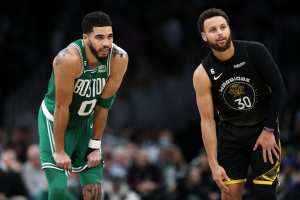
NBA Power Rankings: How All 30 Teams Stack Up Ahead of Christmas
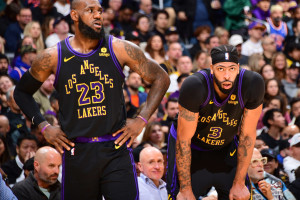
Writing Every NBA Team's Holiday Wish List
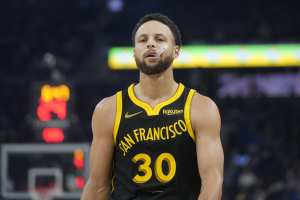
Warriors' Steph Curry's NBA Record Streak of 268 Straight Games With 3-Pointer Ends
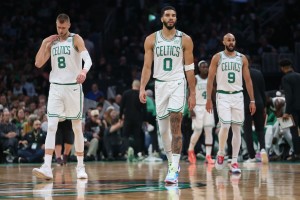
NBA's Biggest Winners and Losers After 1 Month

Updated Win-Loss Predictions After NBA In-Season Tournament
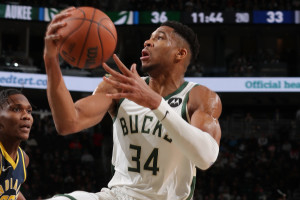
Giannis Scores Bucks Record 64 Points; Has Heated Exchange With Haliburton on Video
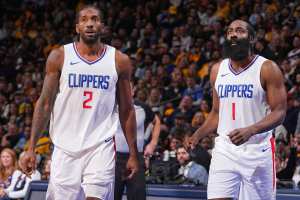
Ranking Every NBA Team's Starting Lineup So Far
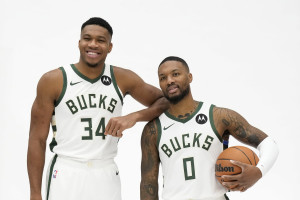
32 Predictions for the 2023-24 NBA Season

Arrest Warrant Issued After Fan Allegedly Breaks Into Warriors' Stephen Curry's Home
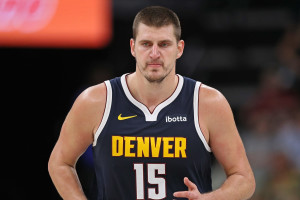
Predictions for NBA's 1st-Ever In-Season Tournament

